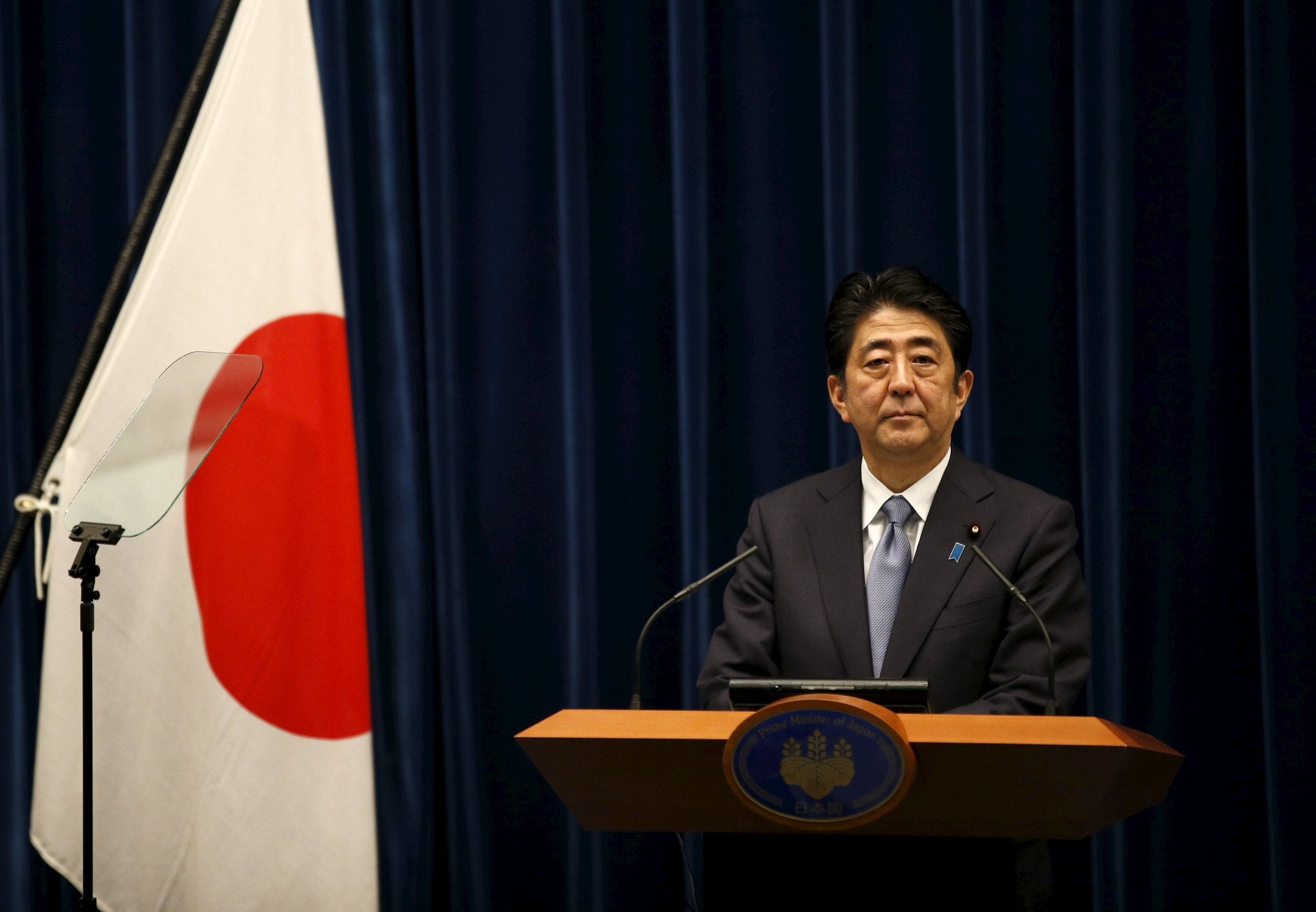Shinzo Abe: 'Japan inflicted immeasurable damage and suffering in World War II'
Japanese PM delivered once-in-a-decade statement marking anniversary of the war's end

Your support helps us to tell the story
From reproductive rights to climate change to Big Tech, The Independent is on the ground when the story is developing. Whether it's investigating the financials of Elon Musk's pro-Trump PAC or producing our latest documentary, 'The A Word', which shines a light on the American women fighting for reproductive rights, we know how important it is to parse out the facts from the messaging.
At such a critical moment in US history, we need reporters on the ground. Your donation allows us to keep sending journalists to speak to both sides of the story.
The Independent is trusted by Americans across the entire political spectrum. And unlike many other quality news outlets, we choose not to lock Americans out of our reporting and analysis with paywalls. We believe quality journalism should be available to everyone, paid for by those who can afford it.
Your support makes all the difference.Japanese Prime Minister Shinzo Abe recognised the "immeasurable damage and suffering" his country caused during World War II in a highly-anticipated speech marking the 70th anniversary of Japan's surrender.
Abe said "Japan has repeatedly expressed feelings of deep remorse and heartfelt apology for its actions during the war," though he stopped short of explicitly offering a new apology.
He did, however, express feelings of "profound grief" and offered "eternal, sincere condolences".
He said: "I bow my head deeply before the soul of all those who perished at home and abroad."
The statement will come under scrutiny by Japan's neighbours, especially South Korea and China, who were victims of Japan during World War II and who believe the Abe government glosses over the atrocities committed — most famous of which was the massacre of Nanking.
Just weeks ago, backed by Abe, Japan's lower house approved changes to the constitution which would allow its forces to fight overseas for the first time since the war.
And this approach featured in Abe's statement. He said the post-war generations who make up 80% of the Japanese population "must not be predestined to apologise".
He added: "Still, even so, we Japanese, across generations, must squarely face the history of the past."
The first in these once-in-a-decade acts of contrition was delivered in 1995, when Prime Minister Tomiichi Murayama issued a "heartfelt apology" and expressed "deep remorse" for Japan's "colonial rule and aggression".
The sentiments of that statement were repeated 10 years later by Prime Minister Junichiro Koizumi.
Join our commenting forum
Join thought-provoking conversations, follow other Independent readers and see their replies
Comments